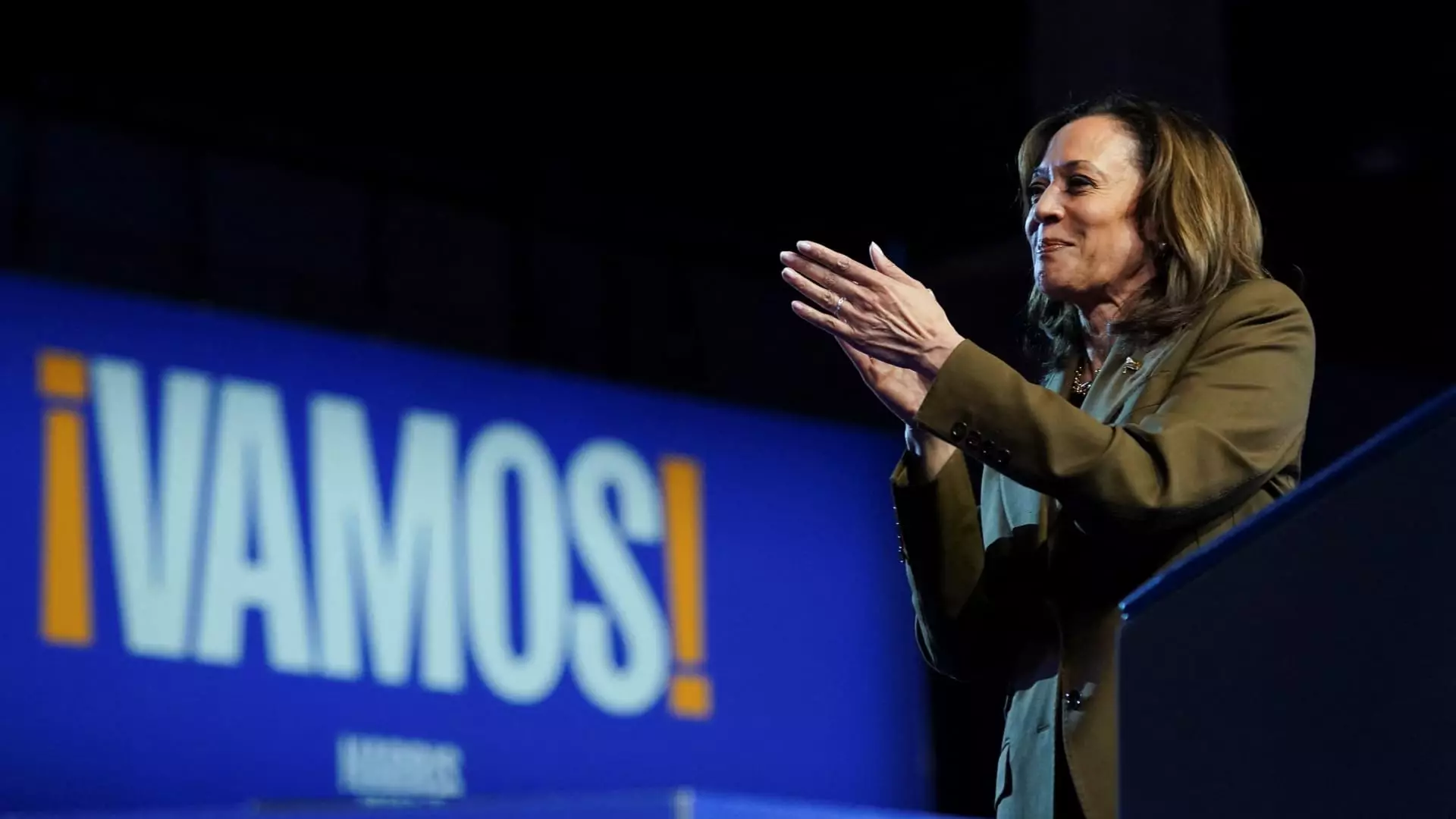In an effort to galvanize support among crucial demographics, the campaign for Vice President Kamala Harris is rolling out a focused initiative centered on small businesses in battleground states. This week, surrogates for the Harris campaign will embark on a tour across at least six states, including Arizona, Georgia, Michigan, Nevada, North Carolina, and Pennsylvania, to engage with local entrepreneurs and community leaders. Notably, Vice President Harris will not personally attend these events, delegating the outreach to elected officials and community advocates instead. This delegation details a strategic pivot in the campaign’s approach, acknowledging both the significance of local touchpoints and the necessity to maintain a presence in target areas.
Addressing Shifts in Voter Sentiment
Harris’s initiative is not just a routine campaign event; it is a calculated response to shifting voter sentiments, especially among Black and Latino communities. These groups historically contributed to the Democratic stronghold in 2020, yet recent polling indicates a growing inclination toward Republican nominee Donald Trump. Trump’s overt appeals to minority voters, as seen in his recent rally statements, are indicative of his attempts to disrupt the Democratic voter base. In response, the Harris campaign is striving to reestablish a connection with these communities, fortifying their commitment to addressing the challenges faced by small business owners.
Forging Economic Connections
The tour is emblematic of a broader strategy that emphasizes economic empowerment through small business growth. Richard Garcia, small business engagement director for the Harris campaign, articulated the Vice President’s dedication to supporting small enterprises. This narrative is not new to the Democratic playbook; President Joe Biden, prior to his nomination, had similarly championed the cause of minority-owned businesses as a means to combat systemic inequality. By highlighting her administration’s achievements in bolstering Black and Latino entrepreneurship, Harris aims to draw a sharp contrast between her vision and that of her Republican counterpart, who is portrayed as self-serving and disconnected from the needs of everyday Americans.
A significant aspect of this campaign initiative includes Harris’s policy proposals, which could offer substantial economic relief for small business owners. One of the standout proposals is a dramatic increase in the tax deduction for startup expenses, which could rise from the current $5,000 to an impressive $50,000. This change reflects a profound understanding of the obstacles that small businesses face, particularly post-pandemic. By advocating for such policies, the campaign not only seeks to win back the loyalty of critical voting blocs but also aims to foster a robust economic environment where small businesses can thrive.
Moreover, the campaign’s strategy encompasses a suite of organizing events, including volunteer training sessions and house parties designed to create grassroots momentum. This multifaceted approach suggests a commitment to building long-term relationships with constituents, going beyond mere election-year promises. By actively engaging communities, Harris’s campaign is signaling its intention to be a viable ally for small businesses, seeking to revitalize local economies and restore confidence among voters.
The Harris campaign’s targeted outreach to small businesses underscores the vital role of economic issues in the upcoming election. By fostering connections with key communities and advocating for impactful policy changes, the campaign seeks to reassert its commitment to the interests of small business owners and reclaim essential voter demographics. The success of this initiative will depend on the ability to resonate with constituents while effectively countering the narrative put forth by the opposition.



Leave a Reply